The Sun warms our planet - the surface, the atmosphere and bodies of water. It allows this mother and young boy to enjoy warmth and light during an outing at the beach. Photo taken in May in the Outer Banks, NC.
Click on image for full size
Windows to the Universe original image
Sun's Effect on Earth
The Sun is very important to
the Earth. The Sun warms our planet, heating
the surface,
the oceans and
the atmosphere. The Sun also gives us light. We definitely couldn't live on Earth without the Sun!
But did you know that it's the energy from the Sun that drives our weather? Our climate is also affected by how much energy the Sun gives off.
The amount of energy the Sun gives off changes with solar activity like solar flares or sunspots. Solar activity varies in a cycles.
Some scientists wondered if changes in our weather and climate might be linked with these changes on the Sun. Scientists have done a lot of research and have used the scientific process to see if there were links there.
After much research and experiments, it seems there is not a link between solar cycles and Earth's weather. For example, the number of sunspots on the Sun doesn't change how the wind blows on Earth.
Studies have shown that changes in light given off by the Sun do affect Earth's climate. But these changes in light given off by the Sun are very small, so they don't account for the large changes we are now seeing in the Earth's climate. For example, most of the warming of the Earth called global warming isn't caused by changes in the Sun's energy output. Computer models of the Earth’s climate show that this warming is caused by greenhouse gases added to the atmosphere because of human activity.
You might also be interested in:
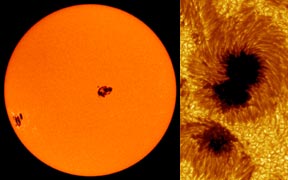
Sunspots are dark spots on the Sun. They may look small, but they are actually as bigas a planet like Earth or Mars! Sunspots are "dark" because they are colder than the areas around them. Of course, they
...more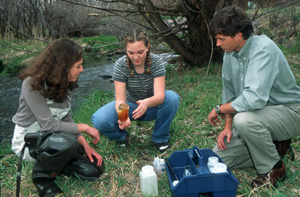
Being a scientist is fun. You get to do experiments and think of reasons why things might be happening a certain way. Being a scientist is also hard work. After a scientist comes up with a reason why something
...more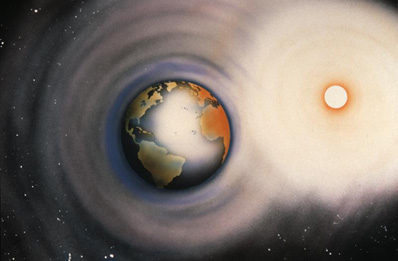
Did you know that the Sun has spots on it? The number of spots on the Sun changes. Sometimes there are lots of spots and other times there few spots. Scientists have wondered for a long time if the number
...more
Have you ever taken your temperature to see if you are getting sick? Scientists have been taking the Earth's temperature and have found that it is getting warmer. During the past 100 years, the Earth's
...more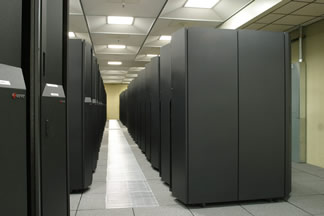
To figure out what the Earth might be like in the future, scientists need to know how Earth reacts to changes. Models help scientists to better understand how the Earth works and how it will react to climate
...more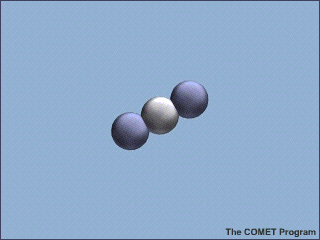
Only a tiny amount of the gases in Earth’s atmosphere are greenhouse gases. But they have a huge effect on climate. There are several different types of greenhouse gases, but they all have something in
...more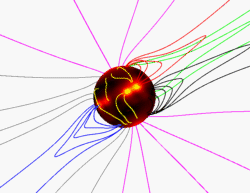
Text for this level has not been written yet. Please see the "Intermediate" text for this page if you want to learn about this topic. To get to the "Intermediate" text, click on the blue "Intermediate"
...more















